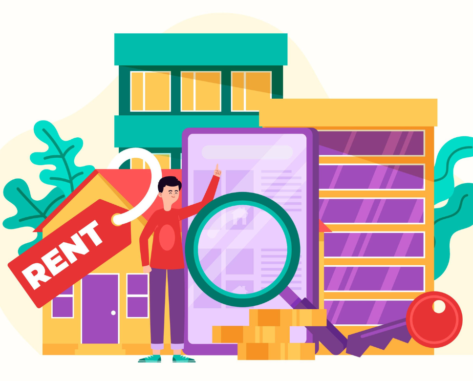LESSON OVERVIEW
In this grammar lesson students learn how to use articles (‘a/an’, ‘the’, no article). They listen to recordings (links in pdfs and e-lesson plan), discuss renting a flat, and do grammar exercises. Students also have a role play.
B1 / Intermediate60 minStandard LessonUnlimited Plan
WARM-UP & LISTENING
The lesson starts with a short warm-up during which students discuss different things they need to have in a place they rent in various situations (on holiday, when moving to a new city to study, on a business trip). After that, students do a listening exercise. They listen to a landlord talking about a flat and answer the questions about it. Then, they move on to a grammar part of the lesson and learn how to use articles.
GRAMMAR & ROLE PLAY
In this part of the lesson, students learn the grammar rules and have a chance to practise using them. First, they read the script of the recording and learn the rules on how to use articles. There is also an additional activity that helps to reinforce the understanding of the rules after which students move on to a more practical part of the lesson. They listen to one more recording of a landlord speaking about a flat and try to say what’s missing. Since there are no articles, the next task for students is to complete the transcript with articles, if necessary. Students also have to complete sentences with their own ideas and have a discussion about renting a flat.
Finally, students look at the pictures of a flat and try to come up with questions about it. After that, they have a role play where one student is a landlord and the other one is a person trying to find a flat.
HOMEWORK/REVISION
This lesson plan also includes an additional grammar task to practise how to use articles. It’s available in the teacher’s version of the worksheet. You can print it, and hand it out to your students. It’s also included in the e-lesson plan if you teach online.
Subscribe to unlock these and many other Standalone lesson lesson plans with the Unlimited planWORKSHEETS












I like this new concept of having an audio file for students to listen to. Great!
Thanks 🙂
What happened to the “authentic materials” principle?
The principle is still there! You’ll see 90% of our lessons with authentic videos/audio files but we’re also experimenting with new things, such as this lesson.
Tomorrow I will try this type of lesson. The group is at A2 level. I was wondering if the first audio content for A2 students was not a bit fast. Are you planning to use a site that allows you to slow down the built-in audio?
Hmm, we haven’t thought about it yet but I guess we might as well upload it to YT, where you can adjust the speed. Let me know if the audio proves to be too fast and speed-control is something that would help you out.
definitely too fast! Could you get it down to about 80%?
Now, you can change the audio playback speed yourself – check my comment below for instructions.
Hey! We’ve added the audio files to YouTube, where you can easily set the speed you want (see above in this post). Just click the cog ⚙️ icon in the YouTube player, and select ‘Playback speed’ to set the speed you want. Apart from the default options, you can change it to a custom speeed of your choice.
A great lesson!
I’ve been looking for a lesson like that for a long time
Happy to hear you’ve found this lesson useful 🙂
Hello, I have a question regarding one task.
My computer broke. – 1
I dropped a computer in a tech shop and it broke. – 2
I need to buy a laptop.
I need to buy the laptop.
Shouldn’t the answers be the other way around? I mean if I broke my computer it’s sth specific hence we need a definite article. Or maybe I’m wrong. I’m just curious. 😉
Hello!
In the sentence ‘I need to buy a laptop.’ we mean that we need any laptop to replace the one that we broke. But in the second one, ‘I need to buy the laptop.’, we refer to the one that we dropped, which makes it specific. I hope it makes sense 🙂
Ok, but still when I say: ”My computer broke”, it’s sth specific cause it’s not any computer it’s mine. Or maybe it’s me being too nosy 😉
Sure, when we say ‘My computer broke’ we refer to the specific one. But in the second sentence (‘I need to buy a laptop’), we don’t talk about a specific one anymore. We refer to a new computer, not the one that broke. And it makes it non-specific 🙂
Hello people. I cannot find the worksheet.
This lesson is available with the Unlimited subscription. You can see details about the Unlimited subscription here. And feel free to browse free lesson plans here.
I like this lesson. I think that the audio is perfect for lower level listeners who tend to get overwhelmed by the authentic materials with faster speaking, and it’s easy to slow down the audio directly on the Youtube video. Thank you to all who run this site for your hard work; I had been making my own lesson plans for the past year, getting more and more overwhelmed as my number of students kept growing, but now this is a great help and you combine ideas that I would have never thought of on my own. Much appreciated.
Thanks! We’re really happy to hear that you find our materials of great help 🙂
Sounds like AI, I thought this site was about authentic materials?
Thank you for your comment! Most of our lessons are indeed based on authentic materials like videos and podcasts. However, in some cases, we use AI-generated content to ensure students can effectively learn and grasp specific concepts 🙂
You can adjust the speed of the video under “settings”(Bottom right) and click “playback speed”